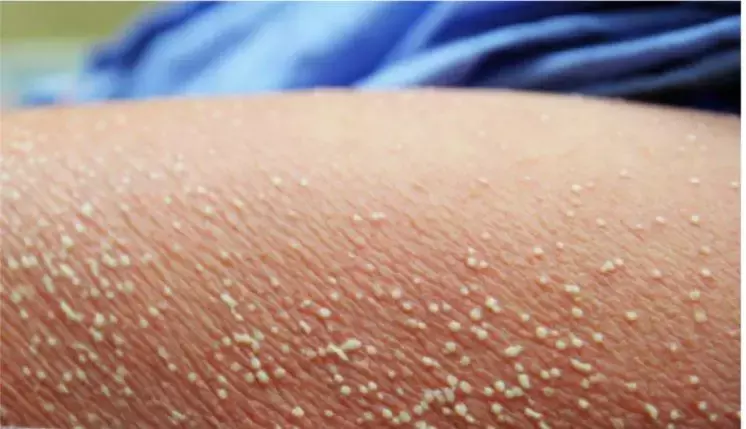- Home
- Medical news & Guidelines
- Anesthesiology
- Cardiology and CTVS
- Critical Care
- Dentistry
- Dermatology
- Diabetes and Endocrinology
- ENT
- Gastroenterology
- Medicine
- Nephrology
- Neurology
- Obstretics-Gynaecology
- Oncology
- Ophthalmology
- Orthopaedics
- Pediatrics-Neonatology
- Psychiatry
- Pulmonology
- Radiology
- Surgery
- Urology
- Laboratory Medicine
- Diet
- Nursing
- Paramedical
- Physiotherapy
- Health news
- Fact Check
- Bone Health Fact Check
- Brain Health Fact Check
- Cancer Related Fact Check
- Child Care Fact Check
- Dental and oral health fact check
- Diabetes and metabolic health fact check
- Diet and Nutrition Fact Check
- Eye and ENT Care Fact Check
- Fitness fact check
- Gut health fact check
- Heart health fact check
- Kidney health fact check
- Medical education fact check
- Men's health fact check
- Respiratory fact check
- Skin and hair care fact check
- Vaccine and Immunization fact check
- Women's health fact check
- AYUSH
- State News
- Andaman and Nicobar Islands
- Andhra Pradesh
- Arunachal Pradesh
- Assam
- Bihar
- Chandigarh
- Chattisgarh
- Dadra and Nagar Haveli
- Daman and Diu
- Delhi
- Goa
- Gujarat
- Haryana
- Himachal Pradesh
- Jammu & Kashmir
- Jharkhand
- Karnataka
- Kerala
- Ladakh
- Lakshadweep
- Madhya Pradesh
- Maharashtra
- Manipur
- Meghalaya
- Mizoram
- Nagaland
- Odisha
- Puducherry
- Punjab
- Rajasthan
- Sikkim
- Tamil Nadu
- Telangana
- Tripura
- Uttar Pradesh
- Uttrakhand
- West Bengal
- Medical Education
- Industry
Amoxicillin may rarely Induce acute generalized exanthematous pustulosis which may be self limiting

Source- Thienvibul C, Vachiramon V, Chanprapaph K. Five-Year Retrospective Review of Acute Generalized Exanthematous Pustulosis. Dermatol Res Pract. 2015;2015:260928. doi: 10.1155/2015/260928. Epub 2015 Dec 10. PMID: 26783390; PMCID: PMC4689982.
Amoxicillin, a commonly prescribed antibiotic, has been linked to an uncommon yet noteworthy skin reaction-Acute Generalized Exanthematous Pustulosis (AGEP). Despite its rarity, understanding the clinical characteristics is paramount for effective prevention and treatment. A recently conducted retrospective study delves into case reports and series to illuminate the landscape of amoxicillin-induced AGEP. The study found that AGEP induced by amoxicillin is a rare, self-limiting complication. Clinicians should be vigilant in recognizing AGEP and refrain from represcribing amoxicillin to avert unnecessary treatment measures.
This study was published in the journal of Dermatologic Therapy by Haibo Lei and colleagues. In this retrospective analysis of cases, a total of 46 patients were included, with a median age of 40 years (ranging from 1.4 to 87). The onset of acute generalized exanthematous pustulosis (AGEP) induced by amoxicillin varied widely, occurring between 6 hours to 28 days, with a median onset time of 2.5 days.
The key findings of the study were:
Patients with amoxicillin-induced acute generalized exanthematous pustulosis (AGEP) presented with various symptoms.
Fever was reported in 69.6% of cases, while pruritus affected 28.3% of patients.
Mucous membrane and systemic involvement were observed in 21.7% of individuals.
Laboratory findings revealed elevated neutrophil levels in 22 patients, with a median count of 12850/mm3 (range 7880 to 29140).
Skin biopsy results demonstrated diverse patterns, including subcorneal pustules (47.8%), spongy pustules (30.4%), and inflammatory cell infiltration (56.5%).
Upon discontinuation of amoxicillin, skin lesions resolved in a median of 10 days (range 2 to 42).
Treatment involved the use of topical steroids in 56.5% of cases and systemic corticosteroids in 28.3% of patients.
This study not only provides clinical insights but also emphasizes the importance of proper identification and management in cases of amoxicillin-induced AGEP.
Reference:
Dr Riya Dave has completed dentistry from Gujarat University in 2022. She is a dentist and accomplished medical and scientific writer known for her commitment to bridging the gap between clinical expertise and accessible healthcare information. She has been actively involved in writing blogs related to health and wellness.
Dr Kamal Kant Kohli-MBBS, DTCD- a chest specialist with more than 30 years of practice and a flair for writing clinical articles, Dr Kamal Kant Kohli joined Medical Dialogues as a Chief Editor of Medical News. Besides writing articles, as an editor, he proofreads and verifies all the medical content published on Medical Dialogues including those coming from journals, studies,medical conferences,guidelines etc. Email: drkohli@medicaldialogues.in. Contact no. 011-43720751


